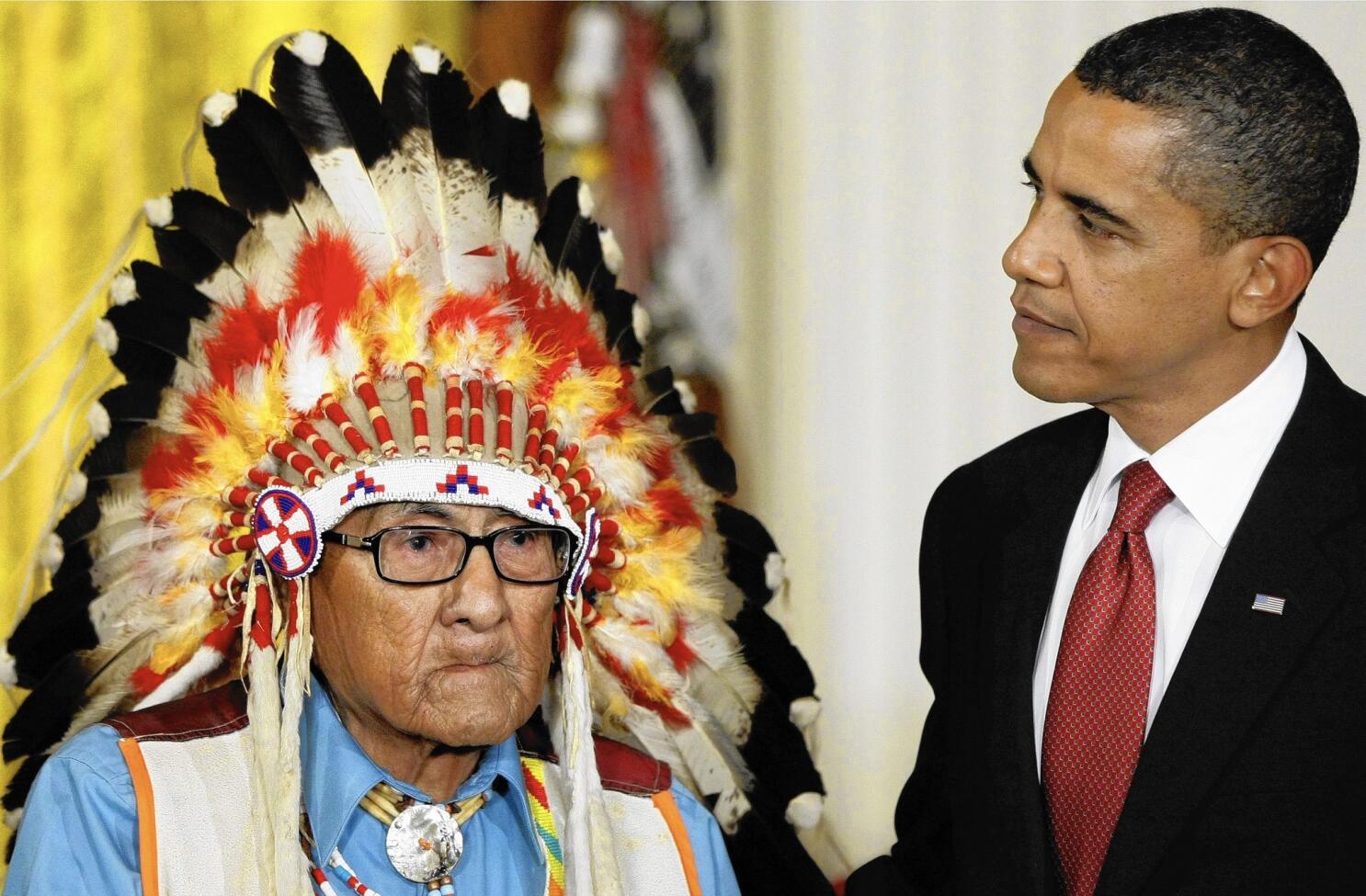
Who was Joe Medicine Crow? Born on October 27, 1913, Joe Medicine Crow was a renowned historian, author, and the last war chief of the Crow Nation. His life was a blend of traditional Native American culture and modern achievements. Why is he significant? Joe Medicine Crow earned the title of war chief through acts of bravery during World War II, including stealing horses from the Nazis and capturing an enemy soldier. What else did he accomplish? He received the Presidential Medal of Freedom in 2009 for his contributions to preserving Native American history. Why should you care? His story is a testament to courage, resilience, and the importance of cultural heritage.
Key Takeaways:
- Joe Medicine Crow, a Crow Nation member, served in WWII and became the last traditional war chief. His legacy inspires Native American culture and education, leaving a lasting impact on generations.
- Joe Medicine Crow's remarkable life, from war hero to cultural advocate, earned him the Presidential Medal of Freedom. His dedication to preserving Crow heritage continues to influence and inspire.
Early Life and Heritage
Joe Medicine Crow, a remarkable figure in Native American history, lived an extraordinary life. His early years were filled with rich cultural heritage and traditions.
- Born on October 27, 1913, in Montana, Joe Medicine Crow was a member of the Crow Nation.
- His Crow name was High Bird, reflecting his esteemed place in the tribe.
- Joe was the grandson of the famous Crow chief, Medicine Crow, who fought in the Battle of the Little Bighorn.
- Raised by his grandparents, Joe learned traditional Crow ways and stories from a young age.
- He was the first in his family to attend college, earning a degree in sociology from Linfield College in 1938.
Military Service
Joe Medicine Crow's bravery and leadership extended beyond his tribe. His service during World War II showcased his courage and dedication.
- Joe Medicine Crow served as a scout in the U.S. Army during World War II.
- He completed all four traditional war deeds required to become a Crow war chief: touching an enemy without killing him, taking an enemy's weapon, leading a successful war party, and stealing an enemy's horse.
- During the war, he famously stole 50 horses from a German camp, singing a Crow honor song as he rode away.
- Joe Medicine Crow was awarded the Bronze Star and the French Legion of Honor for his bravery.
- His war deeds were recognized by the Crow Nation, making him the last traditional war chief of the tribe.
Contributions to Culture and History
Joe Medicine Crow's impact extended beyond his military service. He dedicated his life to preserving and sharing Crow culture and history.
- He worked as a historian and anthropologist, documenting Crow traditions and stories.
- Joe Medicine Crow wrote several books, including "From the Heart of the Crow Country: The Crow Indians' Own Stories."
- He was instrumental in the establishment of the Little Bighorn College, a tribal college in Montana.
- Joe Medicine Crow served as a cultural consultant for films and documentaries about Native American history.
- He gave lectures and presentations across the United States, educating people about Crow culture and history.
Recognition and Awards
Joe Medicine Crow's contributions did not go unnoticed. He received numerous awards and honors throughout his life.
- In 2009, President Barack Obama awarded Joe Medicine Crow the Presidential Medal of Freedom, the highest civilian honor in the United States.
- He received honorary doctorates from the University of Southern California and Rocky Mountain College.
- Joe Medicine Crow was inducted into the Montana Hall of Fame.
- He was named a National Living Treasure by the U.S. Library of Congress.
- The Crow Nation declared October 27 as Joe Medicine Crow Day in his honor.
Legacy and Influence
Joe Medicine Crow's legacy continues to inspire and influence people today. His life and achievements serve as a testament to the strength and resilience of Native American culture.
- He was a mentor to many young Native Americans, encouraging them to pursue education and preserve their heritage.
- Joe Medicine Crow's stories and teachings are still shared within the Crow Nation and beyond.
- His life has been the subject of numerous books, articles, and documentaries.
- The Joe Medicine Crow Center for American Indian Research and Native Studies was established to honor his contributions.
- He was a strong advocate for Native American rights and sovereignty.
Personal Life and Character
Joe Medicine Crow was not only a leader and warrior but also a beloved family man and community member.
- He married Gloria Morrison in 1947, and they had three children together.
- Joe was known for his humility, often downplaying his achievements and focusing on the importance of community and tradition.
- He enjoyed sharing stories and songs with his grandchildren, passing on the knowledge and wisdom of the Crow people.
- Joe Medicine Crow was an avid outdoorsman, enjoying hunting and fishing in the Montana wilderness.
- He remained active in his community well into his 90s, attending events and ceremonies.
Final Years and Passing
Joe Medicine Crow's life spanned nearly a century, during which he witnessed and contributed to significant changes in Native American history.
- He continued to write and speak about Crow culture and history until his final years.
- Joe Medicine Crow passed away on April 3, 2016, at the age of 102.
- His funeral was attended by hundreds of people, including tribal leaders, military veterans, and government officials.
- He was buried with full military honors, reflecting his service and dedication to his country and tribe.
- Joe Medicine Crow's legacy lives on through his writings, teachings, and the many lives he touched.
The Legacy of Joe Medicine Crow
Joe Medicine Crow's life was a testament to bravery, wisdom, and dedication. From earning the title of the last Crow War Chief to receiving the Presidential Medal of Freedom, his achievements are nothing short of inspiring. He bridged the gap between ancient traditions and modern society, ensuring the stories and values of the Crow people endured. His contributions to history, both as a warrior and a scholar, highlight the importance of preserving cultural heritage. Joe's legacy continues to inspire new generations to honor their roots while embracing the future. His life reminds us that true leadership comes from a blend of courage, knowledge, and a deep sense of duty to one's community. As we reflect on his remarkable journey, let's carry forward the lessons he imparted, ensuring his spirit and teachings live on.
Frequently Asked Questions
Was this page helpful?
Our commitment to delivering trustworthy and engaging content is at the heart of what we do. Each fact on our site is contributed by real users like you, bringing a wealth of diverse insights and information. To ensure the highest standards of accuracy and reliability, our dedicated editors meticulously review each submission. This process guarantees that the facts we share are not only fascinating but also credible. Trust in our commitment to quality and authenticity as you explore and learn with us.


